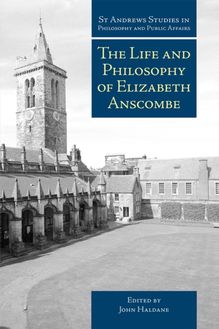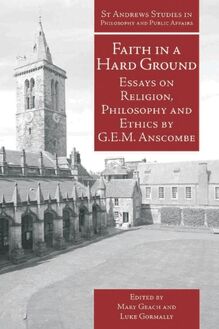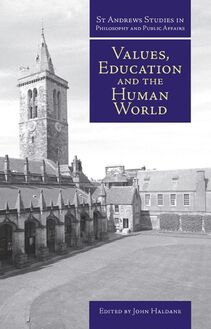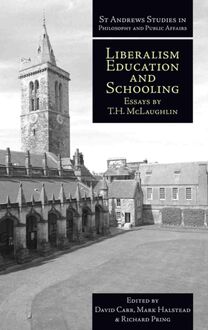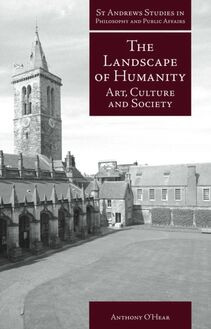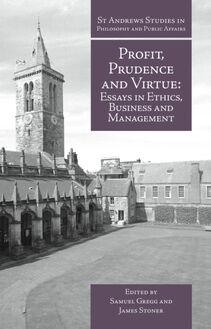-
 Univers
Univers
-
 Ebooks
Ebooks
-
 Livres audio
Livres audio
-
 Presse
Presse
-
 Podcasts
Podcasts
-
 BD
BD
-
 Documents
Documents
-
- Cours
- Révisions
- Ressources pédagogiques
- Sciences de l’éducation
- Manuels scolaires
- Langues
- Travaux de classe
- Annales de BEP
- Etudes supérieures
- Maternelle et primaire
- Fiches de lecture
- Orientation scolaire
- Méthodologie
- Corrigés de devoir
- Annales d’examens et concours
- Annales du bac
- Annales du brevet
- Rapports de stage
La lecture à portée de main
Vous pourrez modifier la taille du texte de cet ouvrage
Découvre YouScribe en t'inscrivant gratuitement
Je m'inscrisDécouvre YouScribe en t'inscrivant gratuitement
Je m'inscrisEn savoir plus
Vous pourrez modifier la taille du texte de cet ouvrage
En savoir plus

Description
Sujets
Informations
| Publié par | Andrews UK |
| Date de parution | 21 octobre 2015 |
| Nombre de lectures | 0 |
| EAN13 | 9781845408541 |
| Langue | English |
Informations légales : prix de location à la page 0,0750€. Cette information est donnée uniquement à titre indicatif conformément à la législation en vigueur.
Extrait
Title page
Social Radicalism and Liberal Education
By Lindsay Paterson
imprint-academic.com
Publisher information
2015 digital version by Andrews UK Limited
www.andrewsuk.com
Copyright © Lindsay Paterson, 2015
The moral rights of the authors have been asserted.
No part of this publication may be reproduced in any form without permission, except for the quotation of brief passages in criticism and discussion.
Imprint Academic
PO Box 200, Exeter EX5 5YX, UK
Cover Photograph:
St Salvator’s Quadrangle, St Andrews by Peter Adamson
from the University of St Andrews collection
Preface
Liberal education has long appealed to the left. Great works of literature have been consoling and encouraging, lessons from history have been inspiring, the ideas of moral philosophy have been invigorating, and the analytical precision of careful scholarship has been felt to deepen the understanding of where society has gone wrong and how it might be made better. Rather more than religion, liberal learning has for intellectuals provided a soul in a heartless world, and capitalism has stood indicted for excluding people from the best of the inherited culture.
During most of the period when modern concepts of liberal education have been influential in Britain there has been, furthermore, a radical strand of support for widening access to it. From the late-eighteenth century to the middle of the twentieth century, the main current of left-wing thought about education sought to extend an appreciation of what Matthew Arnold called the best that has been thought and said. These radical ideas may be traced from Arnold, J.S. Mill and T.H. Huxley, through liberals and socialists such as R.H. Tawney, A.D. Lindsay, Raymond Williams and Richard Hoggart, to the reforming politicians responsible for establishing the educational systems of the welfare state, and even, in the first half of the twentieth century, to quite revolutionary thinkers who sought to overturn the social order but who adhered nevertheless to a common understanding of liberal learning. British radicals of that sort often drew upon cognate thinkers in other countries, such as Antonio Gramsci and Hannah Arendt. This tradition of radical thought was always in creative and sometimes tense dialogue with exponents of liberal education who were of a more conservative disposition, most notably T.S. Eliot, F.R. Leavis, Q.D. Leavis and G.H. Bantock. British socialist thinking about education has learnt a great deal from fruitful dialogue with moderate conservatism. The dialogue was aided by the conservatives’ reciprocal openness to a range of thought, and indeed liberal education itself came to include the principle of democratic pluralism, often drawn in explicit contrast to the educational ideas of the mid-century totalitarian states.
Thus while secondary schooling for everyone was being established between the 1920s and the 1950s, it was taken for granted that the curriculum of that new system ought to be based on these core inherited ideas. When a new kind of adult education was being invented to provide education for the working class - most notably through the Workers’ Educational Association, founded in 1903 - it was supposed that the whole point was to give them access to culture that they had been denied. When good-quality book publishing was being revolutionised in the 1930s, led by Penguin, it was assumed by the editors who led that transformation that the market was for thinking people who leant to the left but who, being educated, wanted to make up their own minds about the great issues of the day. Liberal education in this sense was conservative as to content - the handing on of the cultural legacy - but, in the ideas of the radical thinkers, potentially revolutionary in its implications, because it would form the only secure basis for a proper democracy, in which the citizen would reach the same depth of understanding as the old ruling classes had acquired.
Yet in an abrupt and unprecedented reversal, the radical enthusiasm for that kind of curriculum then disappeared between the 1960s and the end of the century, leading to a retreat by most segments of liberal opinion from constructive discussion about the educational value of inherited ideas, and even from any serious debate about educational standards. Indeed, in many respects, there has been a withdrawal by the political left from truly educational debate altogether, replacing that with a direct concern only with such matters as social inequality and identity. Even more prominent than this in programmes of left-wing governments since the 1960s has been a vocational purpose - preparing people for employment - and a belief that education can lead to economic growth. Any kind of cultural aim has then just vanished.
The book tries to understand why radical thought in Britain originally interpreted education in broadly the same terms as did conservatives, and why the change has taken place more recently. It deals mainly with the twentieth century, but attention is given also to the origins of the ideas in earlier periods, mainly back to the middle of the nineteenth. While concentrating on Britain, it also pays attention to influential ideas from elsewhere, because radical debate and educational debate have never been wholly sealed in national boxes. The discussion is of ideas much more than events, concentrating on prominent left-wing thinkers about education, examining the debates in which they engaged, and reflecting upon the resulting educational policy and practice. The book is not an evaluation of effectiveness - of whether left-wing ideas about education are better than others, or whether the socialist interpretation of liberal education is truer to its spirit than a more conservative one. But insofar as events - such as policies and their effects - are necessary for the understanding of the ideas, there is inevitably some attention to how the debates impinged on practice.
The book may also be thought of as a case study of the role of ideas in the making of public policy. There are three ways in which ideas can enter into policy studies. One is very common, found in the investigation of the ideas of policy makers all the time: in education policy, these might be their beliefs about inequality, about intelligence, about the capacity of people to learn. But what is salient here is rather different from that, and may be succinctly summed up as being the study of ideas about ideas: I discuss in this book what was believed about inherited culture, how left-wing thinkers in theory and in practice understood the intellectual legacy of the past, and what they thought ought to happen to that inheritance in a new society. That is the second sense in which ideas might be studied in policy making, as a consideration of the philosophical systems which were adhered to by influential people. Yet even that way of describing the intention here is not enough, since it is impossible to escape some kind of evaluation of ideas when reflecting on what people thought. In that sense, the study of ideas in action, as it were, is a form of moral philosophy itself, broadly construed. It might be perverse to call this - the third way in which ideas might be studied in connection with policy - ideas about ideas about ideas, but casting judgement on what people thought about the systems of philosophy which they admired seems as inescapable as it would to these thinkers themselves, in their always normative relation to the past. They were interested in the traditions of European civilisation because they admired it and wanted, through socialism, to make it available to all. To put this differently, however important the aim may be of neutrally assessing the ways that people thought about culture, it seems impossible, when discussing this in connection with education, to avoid concluding that some of these ways were better than others, not in the sense of evaluating them in any instrumental sense, but better internally, as an expression of tradition. As we shall see in Chapter 4, moreover, that distinction between evaluating and understanding an inheritance was itself central to some of the later figures in the stories which are told here, notably in the ambiguous and complex writing of Richard Hoggart and Raymond Williams, who stood approximately at the end of a tradition in which the cultural past was held unquestioningly by the political left in high regard.
This way of looking at ideas in policy - of treating what people thought as an opportunity to reflect on whether what they thought was right - may be more apparently useful in the study of education than in some other fields, insofar as ideas might themselves be thought to be the stuff of education (though that claim, as shall be seen in later chapters, is now rather controversial). Nevertheless, it seems possible that considering what people in the past thought about the options in policy across a wide field, and considering also the systems of thought that were available to them, might be a way of stimulating new thinking about the political decisions that face us now. For all the multiculturalism that pervades Western thought today (the educational aspects of which are considered later in this book) the one culture that is generally not treated with respect is that of the past. Unless we are so hubristic as to believe that everything which came before us has been superseded, we might do well to return to the respect for what came before them which the socialist thinkers who are discussed here instinctively felt.
What is meant by liberal education is discussed throughout the book, but especially in Chapter 1, where the history of the ideas associated with that term is introduced. What is meant by ‘social radicali
-
 Univers
Univers
-
 Ebooks
Ebooks
-
 Livres audio
Livres audio
-
 Presse
Presse
-
 Podcasts
Podcasts
-
 BD
BD
-
 Documents
Documents
-
Jeunesse
-
Littérature
-
Ressources professionnelles
-
Santé et bien-être
-
Savoirs
-
Education
-
Loisirs et hobbies
-
Art, musique et cinéma
-
Actualité et débat de société
-
Jeunesse
-
Littérature
-
Ressources professionnelles
-
Santé et bien-être
-
Savoirs
-
Education
-
Loisirs et hobbies
-
Art, musique et cinéma
-
Actualité et débat de société
-
Actualités
-
Lifestyle
-
Presse jeunesse
-
Presse professionnelle
-
Pratique
-
Presse sportive
-
Presse internationale
-
Culture & Médias
-
Action et Aventures
-
Science-fiction et Fantasy
-
Société
-
Jeunesse
-
Littérature
-
Ressources professionnelles
-
Santé et bien-être
-
Savoirs
-
Education
-
Loisirs et hobbies
-
Art, musique et cinéma
-
Actualité et débat de société
- Cours
- Révisions
- Ressources pédagogiques
- Sciences de l’éducation
- Manuels scolaires
- Langues
- Travaux de classe
- Annales de BEP
- Etudes supérieures
- Maternelle et primaire
- Fiches de lecture
- Orientation scolaire
- Méthodologie
- Corrigés de devoir
- Annales d’examens et concours
- Annales du bac
- Annales du brevet
- Rapports de stage
